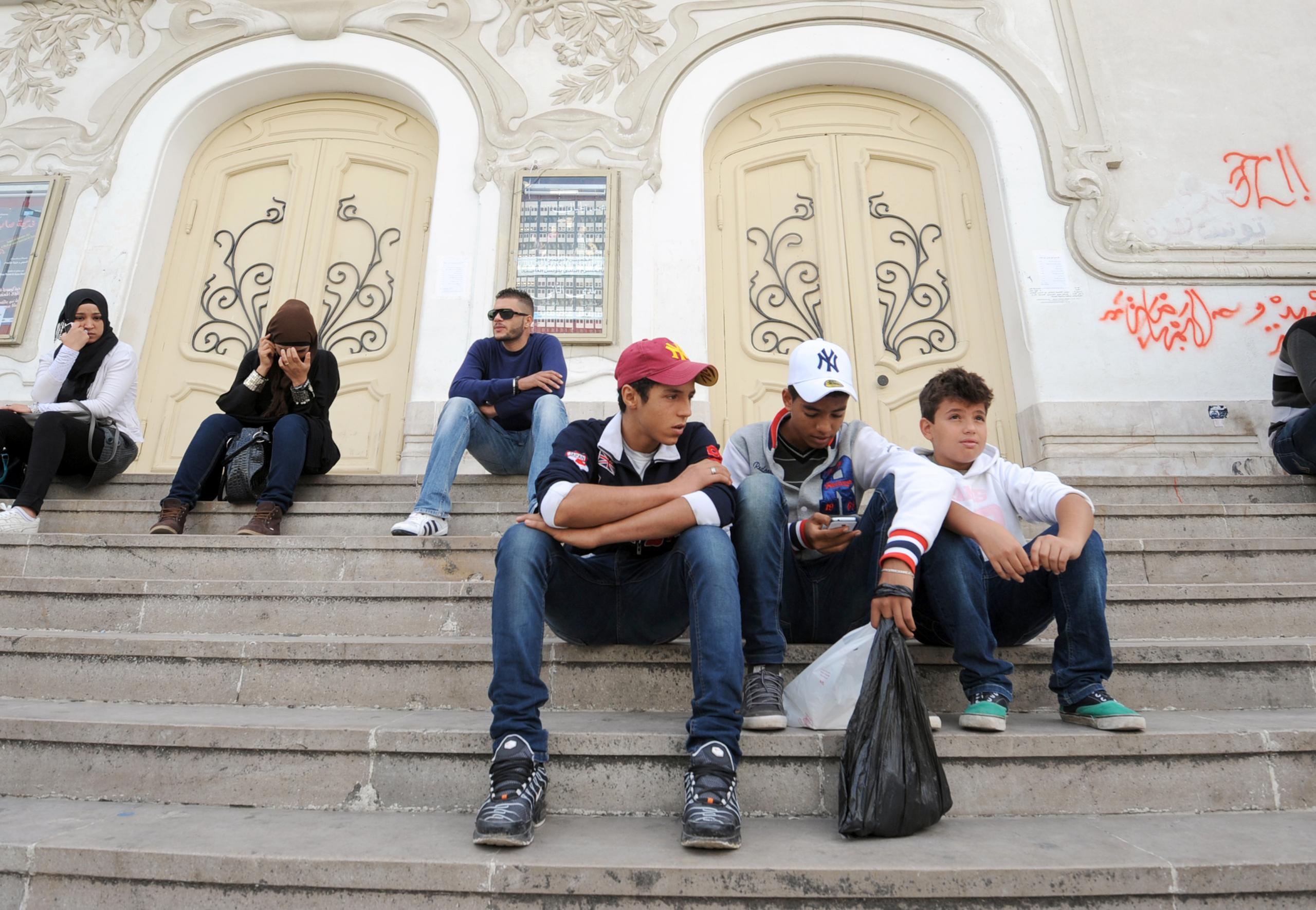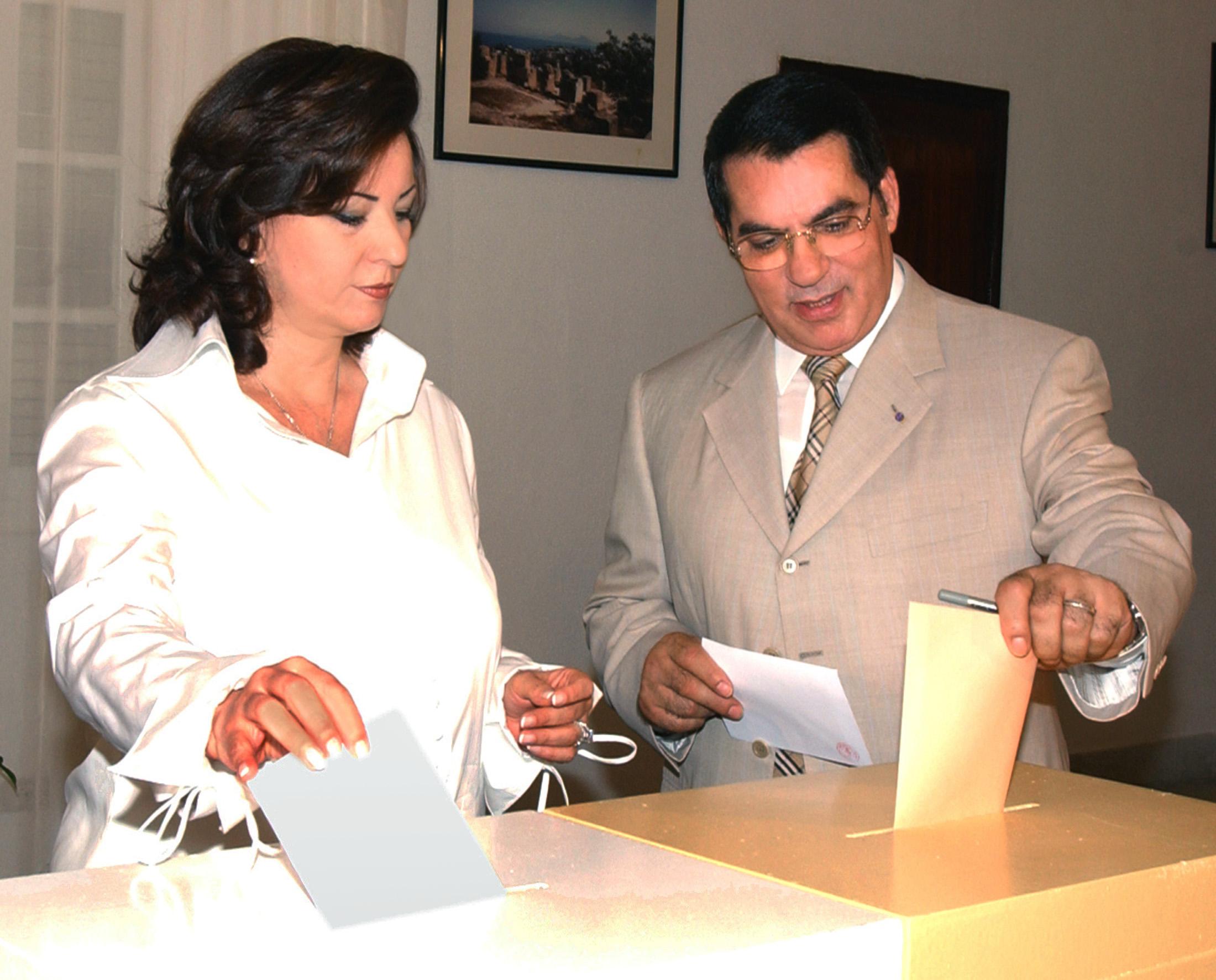Tunisian president to lean on Switzerland to complete path to democracy
Tunisian President Beji Caid Essebsi has told swissinfo.ch he is counting on Switzerland’s vaunted system of direct democracy to help his nation complete the journey it set out on as the only democracy to rise from the Arab Spring protest movement five years ago.
On his first state visit to Bern as the first democratically elected president of Tunisia, Essebsi said the neutral Swiss government had been particularly helpful because it does not impose “pre-conditions” on others.
“Tunisia has begun its democratic transition, but Tunisian democracy has not taken root definitively because democracy is not something that can be imposed but rather practised,” Essebsi said.
“We can say that, despite the difficulties, we have come a good part of the way, even if the democratisation process is not simple,” he said. “In this sense, we believe that our cooperation with Switzerland will be very helpful to us by enabling us to achieve our transition to democracy with the least risk.”
Essebsi arrived on Thursday morning in Switzerland for a two-day visit. He was welcomed to Zurich by Johann Schneider-Ammann, who holds the rotating Swiss presidency this year, and other dignitaries.
Switzerland enjoys a special relationship and access in Tunisia, Essebsi said, despite being the only country that has not yet returned all of the money that was stolen by disgraced Tunisian dictator Zine el-Abidine Ben Ali and his entourage.
“The very location of the [Swiss] embassy is strong proof of the depth of relations between the two nations, because the Swiss embassy building is in the heart of the presidential palace,” he said. “In fact, this is the only embassy situated in the space reserved for the presidency of the republic.”
Priorities
Among the top priorities for the two countries is the CHF60 million ($61.75 million) in blocked Tunisian funds that remain frozen by the Swiss government.
“What must be emphasised in this context is that Switzerland has made efforts to help Tunisia, and during this visit we will sign an agreement on how to cooperate on the issue of funds frozen in Switzerland,” Essebsi said.
“We know that the Swiss state has faced legal challenges to help us solve this problem, because of the unique legal characteristics of Swiss banks,” he said, adding that Tunisia’s own forfeiture law was “insufficient” and time-consuming.
Switzerland was one of the first countries to launch a development assistance programme for Tunisia after the turbulent demonstrations in January 2011, sparked by a young man’s suicide because he could not earn a living. Around one in three young people cannot find a job. More broadly the nation has a 15% unemployment rate.
“Tunisia is facing a social and economic challenge because the causes of the revolution are essentially social. So we cannot solve these problems only through the improved economic conditions of our citizens,” he said.
“Nevertheless, Tunisia is well aware of what it needs to achieve in structural reforms at the constitutional and economic level, especially as [economic reforms] have been completed at the governmental level and we are currently awaiting parliamentary approval, which takes time.”
Essebsi finally made it to Switzerland three months after he originally planned a state visit. Those plans were cancelled because of a deadly bomb attack against a bus carrying members of his presidential guard in the capital Tunis.

More
From Tunis to Geneva, with the chance to learn a trade
Internship programme not working
Switzerland and Tunisia have an agreement, which went into effect in August 2014, according to which they will work together to combat irregular migration, promote socioeconomic development and more quickly repatriate Tunisians whose requests for asylum in Switzerland are not successful.
Switzerland said it would take 150 Tunisian interns a year between the ages of 18 and 35 who can work in Swiss companies and businesses for a maximum of 18 months. The internships are supposed to be paid at the legal Swiss rate for a branch of study that the applicant has completed.
Switzerland has concluded similar migration partnerships with Nigeria, Kosovo, Serbia and Bosnia-Herzegovina, although those do not include the same internship programme.
But Eduard Gnesa, Switzerland’s special envoy for international cooperation on migration with Tunisia, acknowledged to Swiss public television, SRF, that the internship programme wasn’t working as planned. Only about nine applicants had entered the programme, he said.
The reason was that few Swiss companies want to invest the time and money in young people who cannot stay for the long haul. By contrast, he said, there have been so many Tunisians unsuccessfully seeking asylum in Switzerland that the Swiss government has been covering their costs to return home when the process is unsuccessful. The Swiss have been paying Tunisia about CHF20 million a year for that purpose.
“This is worth the money. An asylum seeker who stays here and cannot go back to Switzerland costs CHF18,000 per year,” he said. “We’re working to improve this situation.”
Translated by Khamel Dhif and John Heilprin

In compliance with the JTI standards
More: SWI swissinfo.ch certified by the Journalism Trust Initiative












You can find an overview of ongoing debates with our journalists here . Please join us!
If you want to start a conversation about a topic raised in this article or want to report factual errors, email us at english@swissinfo.ch.